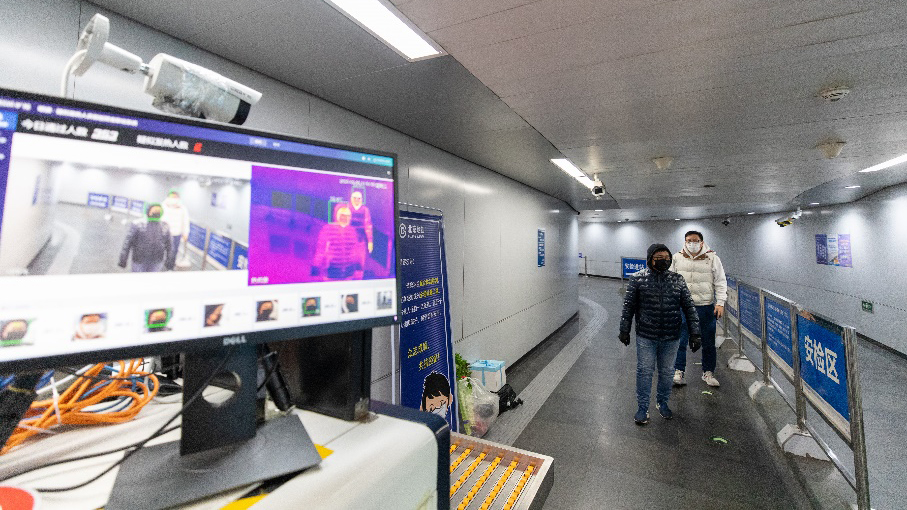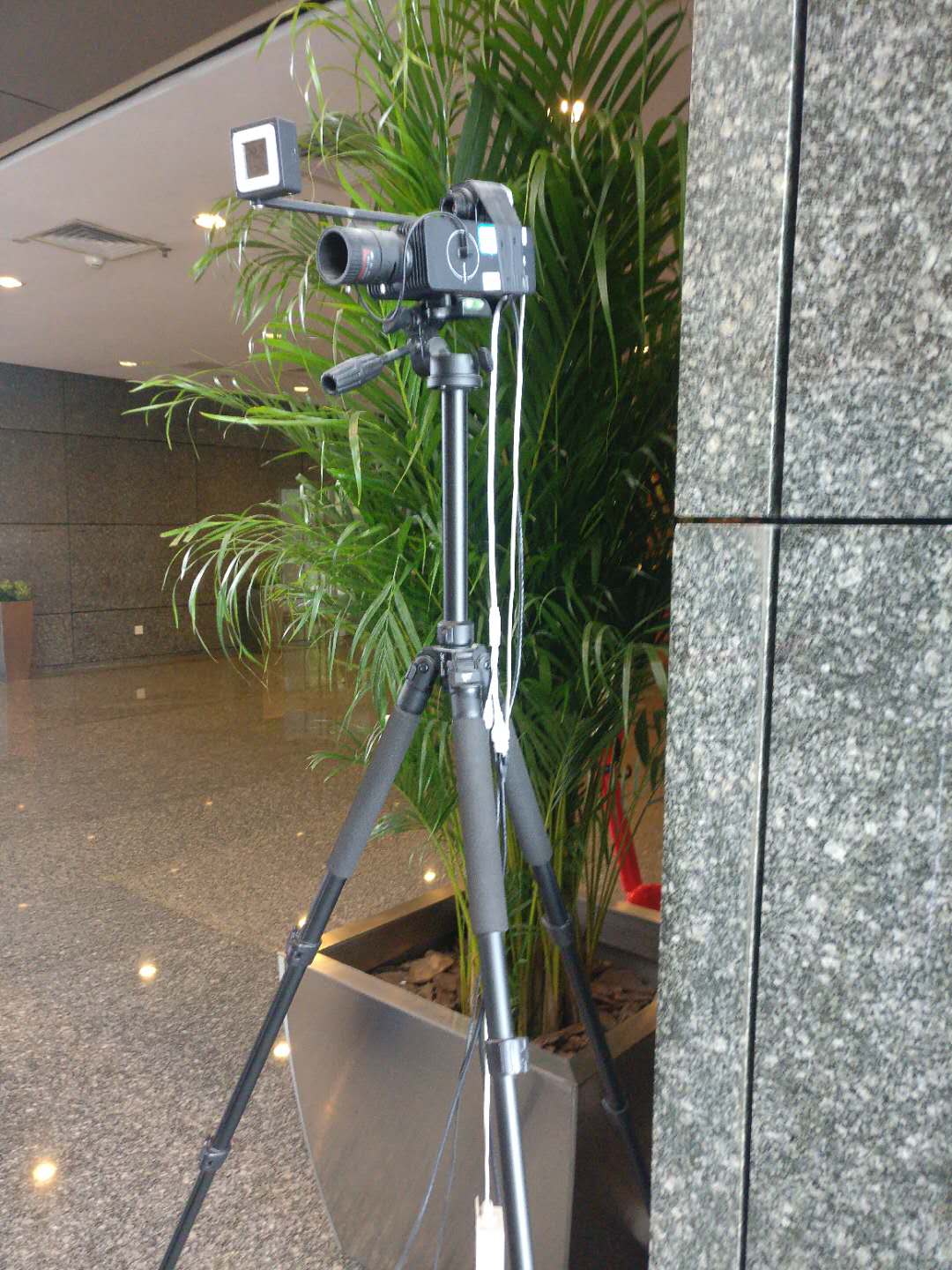02:15

There's now a new normal in China as the country has reined in the COVID-19 pandemic. People in the country have gotten used to mask-wearing, recording their travel history, and getting their temperatures taken everyday, everywhere.
But as it turns out, to have a precise reading with a mask on, at a distance and simultaneously for a large number of people, is not easy and requires advanced technology.
Megvii, a company best known for facial recognition technology, says it can take the precise temperatures of 300 people at one time, with a less than 0.2 degree Celsius deviation.
The company said it had ramped up the temperature-measurement product line when the COVID-19 pandemic struck in late January, the most unsettling Chinese New Year holiday ever.
Jiang Yan, Vice President with Megvii, said it was a time of emergency, as their service was in huge demand since the spring festival travel rush typically saw tens of millions of Chinese travel across the country. Locating and singling out people with higher than normal temperatures quickly was pertinent.
"We were answering to the rallying call back then in Zhongguancun. The Chinese silicon valley had asked all tech companies to develop what they can to help cope with the pandemic,"Jiang said.

Megvii equipment used in work places. /CGTN
Megvii equipment used in work places. /CGTN
Megvii measurement equipment was first used in Beijing early February, including at subway stations and supermarkets in the city. It was used in Wuhan's temporary hospitals. And now, it's used in airports and other institutions in countries including South Korea and the UAE, said Jiang.
Also in the Chinese Silicon Valley, Haidian Hospital was among the first in the country to have robots to help with making rounds, delivery and sanitizing. Doctors have told CGTN that it's a mechanic touch they welcome when facing the infectious virus.
Dong Jianping, Director at the Department of Infectious Diseases of Haidian Hospital, said the robots helped the team to keep up with their work while offering more protection against the virus.
"To tend to patients means spending a long time with them, closely monitoring their conditions all day and answer their needs. My biggest worry was about keeping my team of medics safe and protected," she said.
During the pandemic when the hospital housed suspect COVID cases, Dong's team would call on patients with the robot. The robot would send in meals in place of nurses.
The hospital, along with many across China started using AI-powered CT scan machines for evaluation and detection as early as February. Their experiences have since been shared with other countries.
These companies said they've found battling with COVID-19 among their most challenging experiences, but added more will come out from their efforts to help with epidemic control and health management.